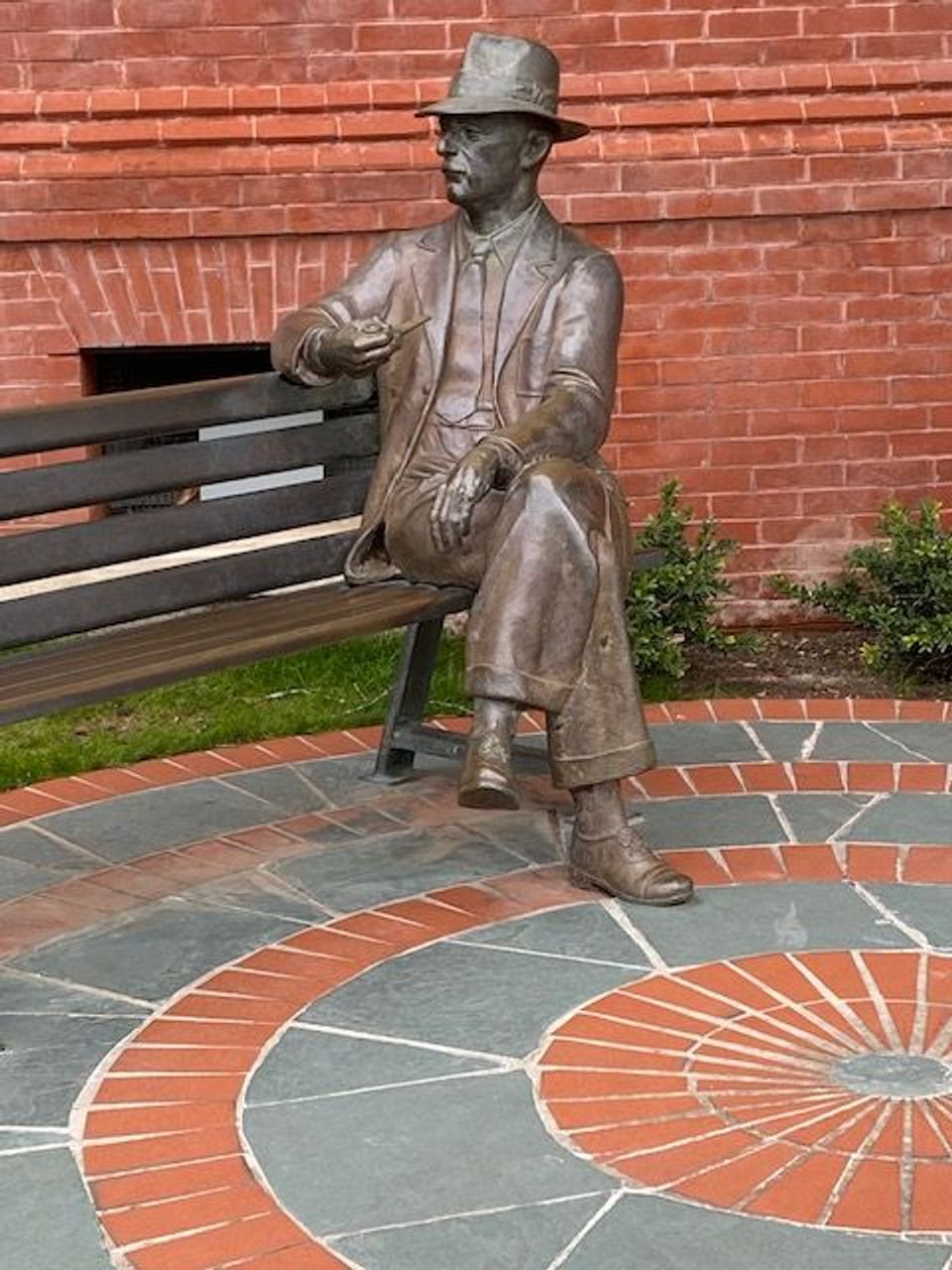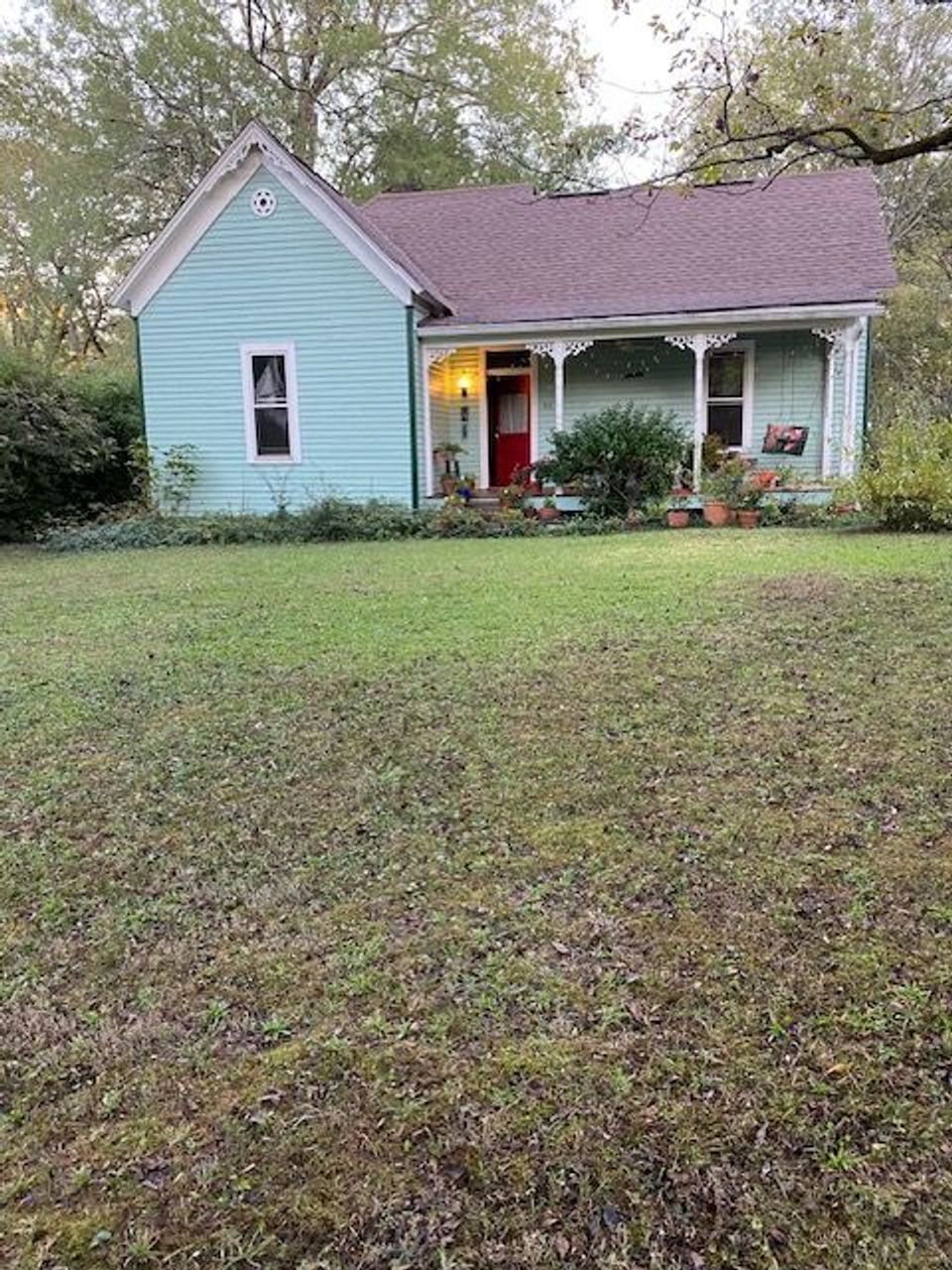Small Town Dispatches: Ann Fisher-Wirth
Welcome to Small Town Dispatches, a new feature on The Peak that recognizes the efforts of sustaining a writing practice in places with unconventional resources. Writing can be deeply isolating, especially when you live outside of cities that are seen as cultural epicenters. So here, Special Features Editor Nadeen Kharputly interviews Shenandoah contributors to gain insights about what it’s like to live in small towns (and towns that feel small): rural areas, college towns, islands, hamlets, and more.
Writer: Ann Fisher-Wirth
Town: Oxford, Mississippi
Bio: Ann Fisher-Wirth’s eighth book of poems is a poetry/photography collaboration with Wilfried Raussert and translations of the poems into Spanish by the Women in Translation collective, Into the Chalice of Your Thoughts (U Guadalajara Press, 2023). Her seventh book is Paradise Is Jagged (Terrapin Books, 2023). Her sixth is The Bones of Winter Birds; her fifth, a poetry/photography collaboration with Maude Schuyler Clay, is Mississippi. With Laura-Gray Street, she coedited The Ecopoetry Anthology and is currently coediting Attached to the Living World: A New Ecopoetry Anthology, with American ecopoems since 2010 by poets not included in volume I. A senior fellow of the Black Earth Institute, she has had Fulbrights to Switzerland and Sweden, and residencies at Djerassi, Hedgebrook, Storyknife, and elsewhere. She has received the 2023 Governor’s Award for Excellence in Literature and Poetry from the Mississippi Arts Commission, as well as three Mississippi Arts Commission Poetry Fellowships, the MS Institute of Arts Poetry Award, and fifteen Pushcart nominations. Ann retired in 2022 from the University of Mississippi, where she taught in the MFA program and directed the Environmental Studies program. Until recently, she also taught yoga at Southern Star in Oxford.

Square Books
Tell us about your small town - how small is it?
In Oxford alone there are about 24,400 people. Of these, 25% are African American. At the University of Mississippi, which is adjacent to Oxford but has its own postal address and zip code, there are about 21,200. Both Oxford and the university have grown a great deal in the last 20 years.
What makes your town a unique place for your writing practice?
Oxford is an amazing place to be a writer. To begin with the university, we have one of the best MFA programs in the United States, given a major financial boost some years ago by John Grisham, who went to law school at the U of MS. (I taught in this program until my retirement in July 2022.) In Oxford itself, we have Square Books and its three offshoots, Square Books Junior (children’s books), Off Square Books (cookbooks, travel, home, used books, performance stage, etc.), and Rare Square (first editions, rare books)—all owned by Richard and Lisa Howorth, and all on the Courthouse Square. Years ago, Square Books was named the best independent local bookstore in the US, and it constantly hosts both local writers and writers on tour. It is a true center of our community—so much so, that Richard was voted Mayor of Oxford for eight years.
Then too, this was the hometown of William Faulkner. His home, Rowan Oak, and the large, adjacent Bailey’s Woods are open for visitors, and are very beautiful. Other writers have also made Oxford or the nearby towns their home, among them Barry Hannah, Larry Brown, William Boyle, Tyriek White, Kiese Laymon (for a time), Derrick Harriell (though he is moving), Beth Ann Fennelly, Tommy Franklin, Melissa Ginsburg, Chris Offutt, Aimee Nezhukumatathil, Matt Bondurant, Sheila Sundar—and the list goes on. And Mississippi statewide: Eudora Welty, Richard Wright, Natasha Trethewey. And the culture of Mississippi—the Blues, the voices, the incredibly beautiful and strange ecosystems, the history of racism, poverty, environmental damage—all of these make where I live a rich, troubling, beautiful place to be a writer.

Statue of William Faulkner on the Courthouse Square
Do you have a favorite writing spot?
My favorite writing spot is my bedroom, which is where my desk is. This probably sounds pretty boring, but it’s not; it’s crowded, though, because my desk is piled so high with books. We live in an old house that was built around 1900, all of wood; the inside walls are heartpine beaded board. My desk is at a window, out of which I look onto the L.Q.C. Lamar House, the historically registered home of Lucius Quintus Cincinnatus Lamar, who was a Civil War colonel and later, a US statesman, and one of the few Confederates who sought to reach across the North/South divisions after the war. (John Kennedy has a chapter about him in Profiles in Courage.) The house is nothing special, not all that big, but the grounds are beautiful; from my window I see wisteria, privet, bamboo, a dogwood tree, and a huge, ancient bodock (Osage orange) tree.
My other favorite writing spot is our front porch, which I call my outdoors office. It’s one of those wide Southern porches with columns, at the top of which are beautifully shaped cornices that my son hand-sawed. I sit in my wicker rocker, with my legs propped up on a chair I drag out from the kitchen, and with books or coffee on a little nesting table that used to be my mother’s. From the porch, I am looking at our front yard with all its pots of flowers, the tall crepe myrtle hedge that blocks us from the street, and the two enormous pecan trees—so big that their branches meet across the width of the driveway and yard. When the weather is not too hot or not too cold, this spot is perfect. I wrote a lot on this porch during Covid.

Wirth's house
How do you build community with other writers or creatives in your town?
For 32 years I taught in the English department at the University of Mississippi, so I had a busy, thriving community there. I hosted many visiting writers, both in connection with the English department, and through my other role as Director of our Interdisciplinary Minor in Environmental Studies. Several of my best friends here are poets or academics in the department. Also, my husband and I have close relationships with various people who own or work at Square Books and with other writers, musicians, artists, teachers who live in town.
What do you appreciate most about where you live?
It is so different from other places I’ve lived. I grew up as an Army brat; I was born in D.C. and lived in Germany, Pennsylvania, Japan, northern California, and Southern California, before moving as an adult to Virginia and later to Mississippi. We have been here since 1988 though I still have close ties to Berkeley; I feel half Californian and half Southern, by now. I appreciate it (though “appreciate” is perhaps the wrong word) that Mississippi is so complicated, historically and culturally—with so much that is wonderful and so much that is wrong. I am forced to keep thinking and growing.
What are some of the challenges of living there?
The politics. I am not personally challenged; I have a very comfortable life. I am morally challenged. Under the current governor, Mississippi has refused Medicaid and now recently has cut a program to provide children with lunches during summer vacation. Oxford itself is a foodie’s paradise, but statewide, food deserts abound. Racism still exists. Poverty is rampant. The schools are underfunded; budgeted state monies have been withheld. Environmental awareness is, in general, on a very back burner.
Yet there are many fine, courageous people here who do amazing work to help make things better.
What sort of rituals have you cultivated in your town?
Taking walks with my husband on the old railroad trails that lead away from Oxford through extensive woods toward Taylor. Going to Square Books. Gardening. Going to the farmers’ markets in summer—we have two, within easy walking distance of our house. Formerly, before my hip replacement, teaching yoga for years at Southern Star. And, less often, going to Magnolia Grove, which is one of Thich Nhat Hanh’s Zen monasteries about 40 minutes away.
Can you share any writing advice that's inspired by your living situation?
Keep your eyes open. Think about what you see. Get to know a wide range of people, and care about them.
Is there anything else you’d like to share?
At the center of my life right now is the creative writing course I am teaching at Parchman, the Mississippi State Penitentiary. Parchman, an hour and a half from here in the Delta, is notorious and even though it is better than it used to be, it’s still grim. This is the third time I’ve taught there. My students, at least half of whom have life sentences without hope for parole, are amazing human beings. I have written about this before, and this semester I’m writing yet another long poem about this experience.